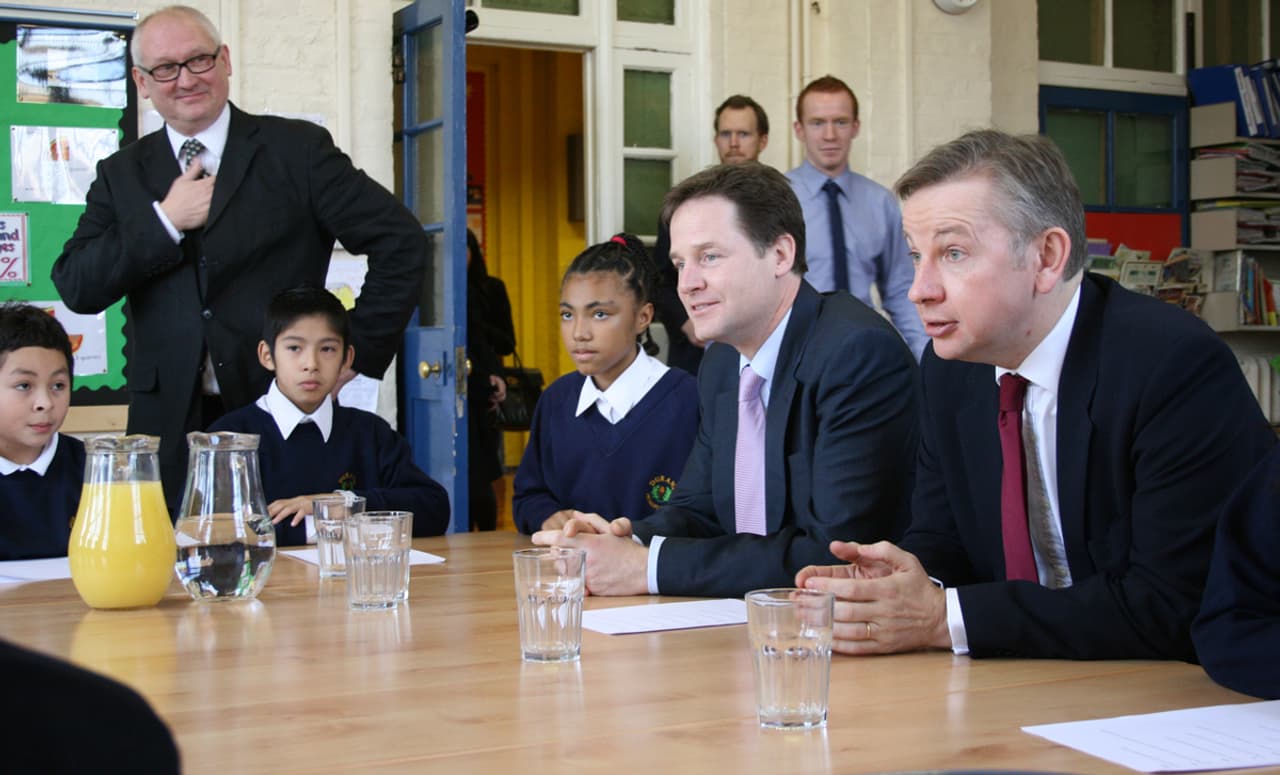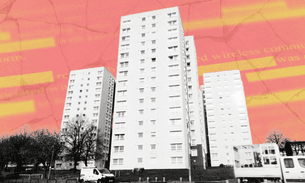
Analysis: What we can’t learn about free schools
Flickr/Deputy PM and Education Secretary visit Durand Academy/Cabinet Office
The start of the academic year this week sees the opening of 24 new free schools, a controversial idea pushed through by education secretary Michael Gove.
Under the minister’s plans individuals, charities, companies, or any other ‘suitable sponsor’ can set up a school and receive government funding without being accountable to local authorities. And, until next week when they open, they are not accountable to the public either.
Under the Freedom of Information Act, the public and the media are allowed to request information from any government body, but free schools, it seems do not become public bodies until they open next week.
This has meant parents, and even the media, have been unable to get hold of certain documents relating to the new free schools.
Opponents, and other local schools have also tried, unsuccessfully, to get information about the new schools. Jean Gaffin, a Barnet resident, for example, wanted to find out about one of the free schools opening in her area, Etz Chaim Jewish Primary School in Barnet.
She opposes the school, and wanted information to help build a case against its opening.
Business case
She made a FOI application to the Department for Education requesting Etz Chaim’s business case, but this was turned down under section 22 of the Act because the information was due to be published at a later date ‘when [the school’s] final costs have been agreed’.
The business case sets out information about the proposed free school like its curriculum, its evaluation of financial viability, and the evidence of demand for a school – all information a parent might also be interested in.
Despite repeated emails and phonecalls to the school, the Bureau was unable to get the business case. Only one school, Eden Primary, has voluntarily published its business case on its website.
Gaffin then asked for an internal review of the department’s decision – this was rejected on the same grounds.
The case has now been referred to the Information Commissioner’s Office (ICO). Even if the ICO orders the department to disclose the business case it will be too late. The school will already be open.
The department has not published the business cases for any of the 24 schools opening this year, which will receive up to £130m in capital costs.
And with many more in the pipeline, now is surely the time to right this wrong.
Funding
The department’s website says that ‘publishing financial information before negotiations are finished could make it harder to save taxpayers’ money‘, although in order to open the schools must have already signed a funding agreement.
When asked, the department couldn’t even estimate the amount it expected to give to the 24 free schools this year.
A Parliamentary Answer in March this year revealed that £35m was allocated to free schools in 2010/11 for start-up costs, but the figure once the schools open will be substantially more.
Another opaque area around free schools is the New Schools Network, which provides guidance to free schools on applying for funding. It was set up by Rachel Wolf, a former adviser to Gove and received a £500,000 grant – without a tendering process – to do this.
But because it is a charity rather than a public body, it too is not subject to the Freedom of Information Act.
The lack of transparency around Gove’s new schools has opened up the system to much criticism.
‘Veil of secrecy’
Kevin Courtney, Deputy General Secretary of the National Union of Teachers said: ‘The allocation of public funds to establish a new school should be open, transparent and subject to proper scrutiny… The Government is potentially committing millions of pounds of public funds to establish new free schools at a time when funding to existing state schools is being cut. The public has a right to expect that its funds are being used prudently. Lifting the veil of secrecy from the free school approval process is the first step in this direction.’
Darren Northcott, National Official for Education at NASUWT said: ‘People have been told the business cases will be published later, by which time no-one can make any objections or ask questions. Regardless of what you think of free schools the lack of transparency undermines the process.’
As children prepare for a new year of learning, the education secretary should take a lesson from his boss David Cameron, who at the start of his term as prime minister pushed through a series of policies aimed at making the government more accountable. This thinking should perhaps be extended to free schools.




